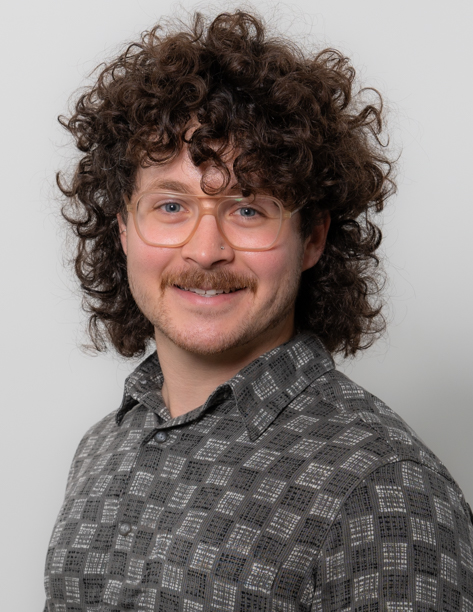
|
Bernard L. Cook III, PhDAssistant Professor (In Residence)Science Editor and Illustrator
|
|||||||
Despite my appointment in the Department of Immunology, I am a science editor and illustrator who provides input for all faculty (and affiliated students and staff) housed within the School of Medicine at UConn Health, regardless of department. Broadly, I support faculty in their efforts related to science communication which typically entails editing and creating illustrations for research grants and manuscripts at the instruction of the researcher. However, the scope of my assistance is broad and may also include improving presentations; supporting book chapters, either through editing or illustration; editing CVs or biosketches; creating brochures; and delivering educational presentations to your department (either faculty or students) about good practices for grant or manuscript writing and creating appealing visuals. If you work within the UConn Health School of Medicine and are interested in working with me, please send me an email at becook@uchc.edu.
| Degree | Institution | Major |
|---|---|---|
| BS | The Ohio State University | Biomedical Engineering |
| PhD | University of Minnesota Twin Cities | Biomedical Engineering |
Awards
| Name of Award/Honor | Awarding Organization |
|---|---|
| Travel Scholarship to NORDP Northeast Annual Fall Meeting | National Organization of Research Development Professionals |
| 1st Place in Student Paper Competition | Summer Biomechanics, Bioengineering, and Biotransport Conference |
| Richard T. Hart Senior Leadership Award | Department of Biomedical Engineering at The Ohio State University |
| 2nd Place in “Engineering: Health and Medicine” | Denman Undergraduate Research Forum |
| University of Minnesota College of Science & Engineering Fellowship | University of Minnesota College of Science & Engineering |
| Tau Beta Pi Engineering Honor Society | Tau Beta Pi Engineering Honor Society — Ohio Gamma Chapter |
| Maximus Scholarship, (2013–2017) | The Ohio State University |
Academic Training: I received my B.S. in Biomedical Engineering from The Ohio State University in 2017 and my Ph.D. in Biomedical Engineering from the University of Minnesota in 2023. At The Ohio State University, I worked in the Injury Biomechanics Research Center under the supervision of Yun-Seok Kang, Ph.D.. There, I characterized a relationship between brain atrophy and age in adults over 55 years of age, data intended to support understanding of how the risk of subdural hematoma in accidents that induce rotational motion (e.g., falls or motor vehicle crashes) changes with age. Outside of this project, I supported crash injury testing through instrumentation, dissection, and evaluation of human cadavers. While an undergraduate, I also served as a Summer Research Intern in the lab of Jay Alberts, Ph.D., at the Cleveland Clinic and a Quality Engineering Intern at Invacare. Following my undergraduate training, I worked under Patrick Alford, PhD, for my graduate training. Using the lab’s custom stretching device, I stretched single cells and groups of cells and evaluated how mechanical stress and actin networks within these cells changed in response to stretch and over time. Subsequently, I developed continuum models to capture these experimental phenomena.
Communication-Related Focus: Throughout my academic training and research experiences, I took a particular interest in science communication. Eager to improve these skill sets, I sought to enrich my communication training in several ways. Beyond working with peers and my advisor to edit their scientific writing, I developed and delivered outreach presentations to audiences spanning from elementary school children to adults enrolled in a continuing education course; volunteered as a grant reviewer for student grants submitted to the University of Minnesota’s Council of Graduate Students; and was a writing intern for both the Science Communication Lab at the University of Minnesota and the Biological Purpose Project, where I interviewed researchers and wrote public-facing articles highlighting their work. The breadth of my experiences, including breadth in scientific topic and breadth in audience, has provided me with a strong ability to communicate science effectively.
Journal Articles
-
The Effect of Four Hours of Continuous Personal Computer (PC) Gaming on the Development of Dry Eye Symptoms in College Students.
Clinical ophthalmology (Auckland, N.Z.) 2025 Jan;192229-2238
-
Surface anatomy in dermatology: Part II - Impact on perioperative management, procedural technique, and cosmesis.
Journal of the American Academy of Dermatology 2023 Jul;
